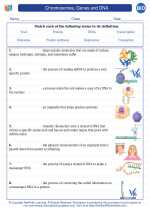Producers in Biology
In biology, producers are organisms that are capable of creating their own food through the process of photosynthesis. They are typically green plants, algae, and some bacteria that have the capacity to convert light energy from the sun into chemical energy in the form of glucose, a simple sugar.
Photosynthesis
Photosynthesis is the process by which producers convert light energy, carbon dioxide, and water into glucose and oxygen. The reaction can be summarized by the following equation:
6CO2 + 6H2O + light energy → C6H12O6 + 6O2
During this process, producers play a critical role in the environment by producing oxygen, which is essential for the survival of other organisms, and serving as the foundation of the food chain.
Importance of Producers
Producers are fundamental to ecosystems as they provide the primary source of energy for all other living organisms. They form the base of the food chain and are consumed by herbivores, which are then consumed by carnivores and so on. Without producers, the entire food web would collapse, leading to the extinction of numerous species.
Study Guide
- Define producers in biology.
- Explain the process of photosynthesis in producers.
- Discuss the importance of producers in ecosystems.
- Identify examples of producers in different environments.
- Describe the role of producers in the food chain.
Understanding the role of producers in ecosystems is crucial for comprehending the interconnectedness of living organisms and the flow of energy within an environment.
.◂Biology Worksheets and Study Guides High School. Chromosomes, Genes and DNA
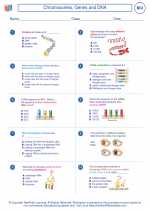
 Worksheet/Answer key
Worksheet/Answer key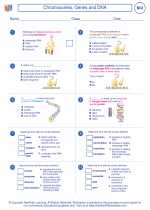
 Worksheet/Answer key
Worksheet/Answer key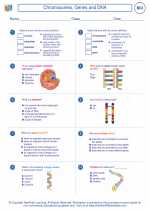
 Vocabulary/Answer key
Vocabulary/Answer key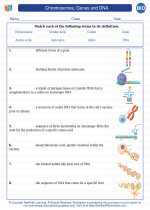
 Vocabulary/Answer key
Vocabulary/Answer key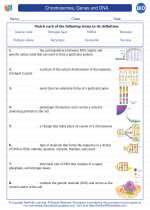
 Vocabulary/Answer key
Vocabulary/Answer key